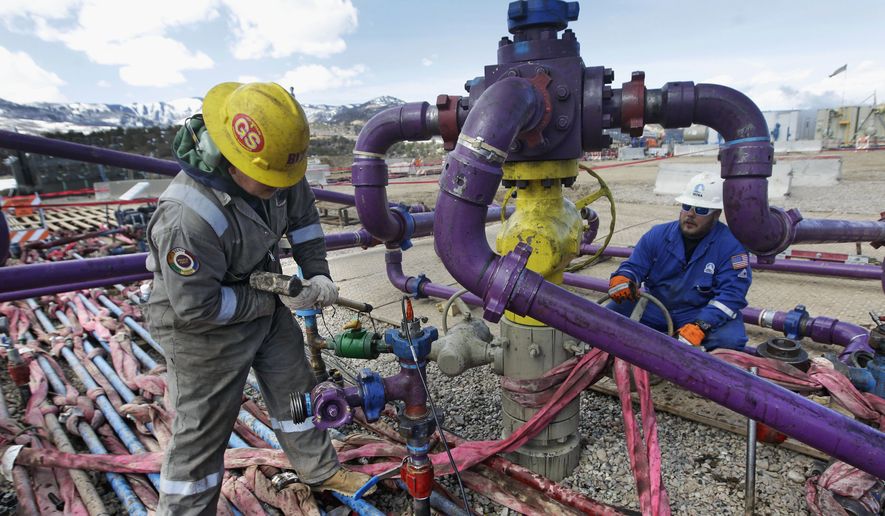DENVER — The Colorado Supreme Court dealt a devastating setback Monday to the state’s environmental movement by throwing out local bans on hydraulic fracturing.
The court ruled that the outright ban approved in Longmont and five-year moratorium passed in Fort Collins conflict with state law authorizing and regulating hydraulic fracturing, an extraction process used by the oil and gas industry.
Dan Haley, president and CEO of the Colorado Oil & Gas Association, which challenged the bans in court, called the decision “not just a win for the energy industry but for the people of Colorado who rely on affordable and dependable energy and a strong economy.”
“It sends a strong message to anyone trying to drive this vital industry out of the state that those efforts will not be tolerated at any level,” Mr. Haley said in a statement.
Meanwhile, opponents of fracking decried the ruling, saying it flies in the face of a community’s ability to safeguard its health.
“Today’s decision deals a devastating blow not just to Longmont residents, but to all Coloradans who have been stripped of a democratic process that should allow us the right to protect our health, safety and property from the impacts of this dangerous industrial activity,” said Lauren Petrie, Rocky Mountain region director with Food & Water Watch.
SEE ALSO: Police more reluctant to shoot blacks than whites, study finds
Colorado moved to the center of the anti-fracking movement with measures approved by voters in a half-dozen communities, primarily liberal college towns with little or no energy-industry ties, to stop oil and gas development, starting with the fracking ban added to the Longmont city charter in 2012.
“Applying well-established preemption principles, we conclude that an operational conflict exists between Longmont’s fracking bans and applicable state law,” said the court’s decision. “Accordingly, we hold that Article XVI is preempted by state law and, therefore, is invalid and unenforceable.”
Environmentalists have attempted for several years to place an anti-fracking measure on the statewide ballot, so far without success. Several signature-gathering efforts that would allow communities to halt oil and gas development within their borders are underway.
The measures have been opposed by Colorado Republicans and Democratic Gov. John Hickenlooper, a former geologist who famously drank fracking fluid to demonstrate its safety.
Fracking foes said the ruling would galvanize their campaigns to qualify initiatives for the November ballot.
“In a politically motivated decision, the court agreed with Governor Hickenlooper in ruling that we’re not allowed to protect our backyards and schoolyards from fracking. This is shameful,” said Food & Water Watch Colorado in a statement. “And it’s exactly why we need to pass the Coloradans Resisting Extreme Energy Development ballot measures this November.”
Jonathan Lockwood, executive director of the free-market group Advancing Colorado, said the decision “is protecting our democratic process and their ruling will help protect our health, safety and property from the attacks of dangerous special interest groups.”
• Valerie Richardson can be reached at vrichardson@washingtontimes.com.




Please read our comment policy before commenting.